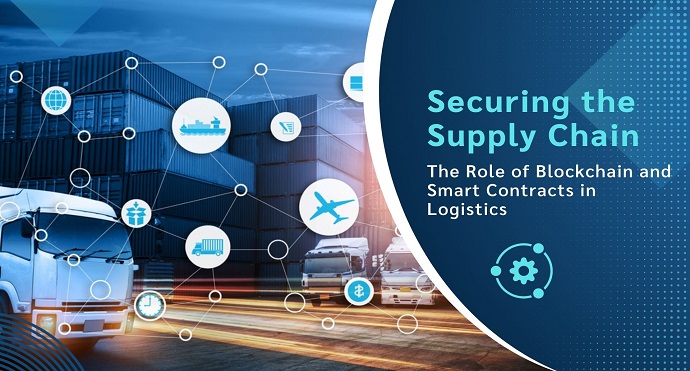The global supply chain is a complex network involving numerous parties, including manufacturers, suppliers, distributors, and retailers. With the increasing globalization and interconnectedness of businesses, ensuring the security and integrity of the supply chain has become a significant concern. Blockchain technology, coupled with smart contracts, offers a promising solution to enhance transparency, traceability, and trustworthiness throughout the logistics process. In this blog post, we will explore the role of blockchain and smart contracts in securing the supply chain and discuss their potential benefits.
I. Understanding the Supply Chain Challenge:
- Complexity and vulnerabilities in the traditional supply chain.
- Risks associated with counterfeiting, fraud, and data tampering.
- The need for enhanced transparency, traceability, and accountability.
II. Introduction to Blockchain Technology:
- Overview of blockchain and its core features.
- Immutable and transparent nature of blockchain.
- Key advantages of blockchain in supply chain management.
III. Leveraging Blockchain in Logistics:
- Blockchain-based decentralized ledger for tracking goods.
- Enhancing transparency and trust among stakeholders.
- Immutable record-keeping and auditing capabilities.
IV. The Role of Smart Contracts:
- Understanding smart contracts and their benefits.
- Automating and enforcing contract terms and conditions.
- Streamlining payments, deliveries, and compliance processes.
V. Blockchain and Smart Contracts in Action:
- Real-world examples of blockchain adoption in logistics.
- Supply chain use cases leveraging smart contracts.
- Demonstrating improved efficiency and security outcomes.
VI. Benefits and Potential Challenges:
- Enhanced supply chain visibility and reduced fraud risks.
- Improved inventory management and streamlined processes.
- Potential challenges and considerations for implementation.
VII. Looking Ahead:
- The future of blockchain and smart contracts in logistics.
- Collaboration among stakeholders for widespread adoption.
- Potential integration with emerging technologies (IoT, AI, etc.).
Conclusion: In conclusion, securing the supply chain is a critical imperative for businesses operating in today’s global market. Blockchain technology, with its inherent features of transparency, immutability, and decentralization, along with smart contracts, offers a promising solution to address the challenges of the traditional supply chain. By leveraging these technologies, businesses can enhance trust, traceability, and efficiency while mitigating risks related to counterfeiting, fraud, and data manipulation. As we look to the future, collaboration among stakeholders and continued advancements in blockchain technology will pave the way for a more secure and reliable supply chain ecosystem.



